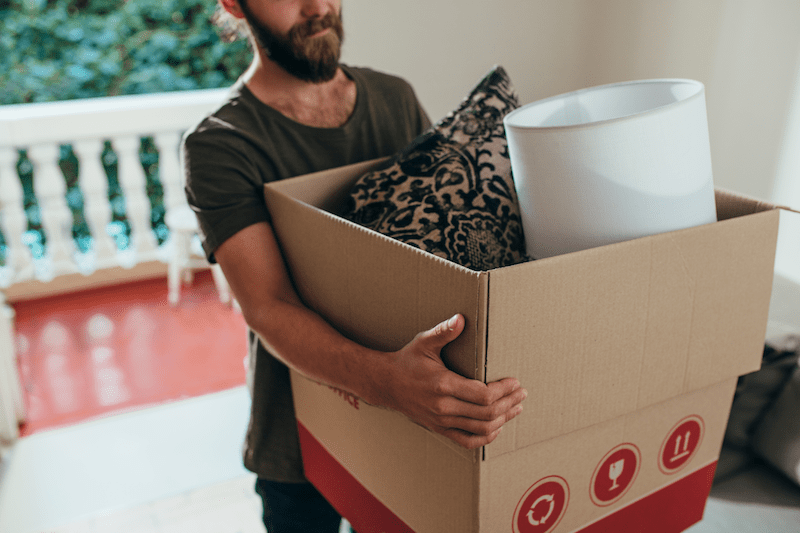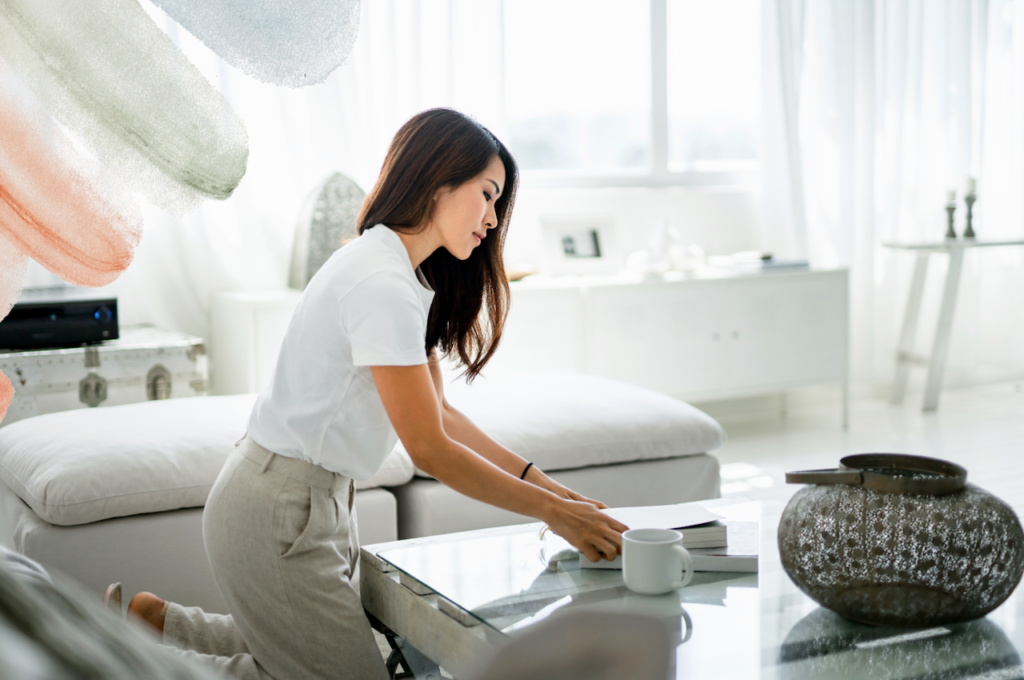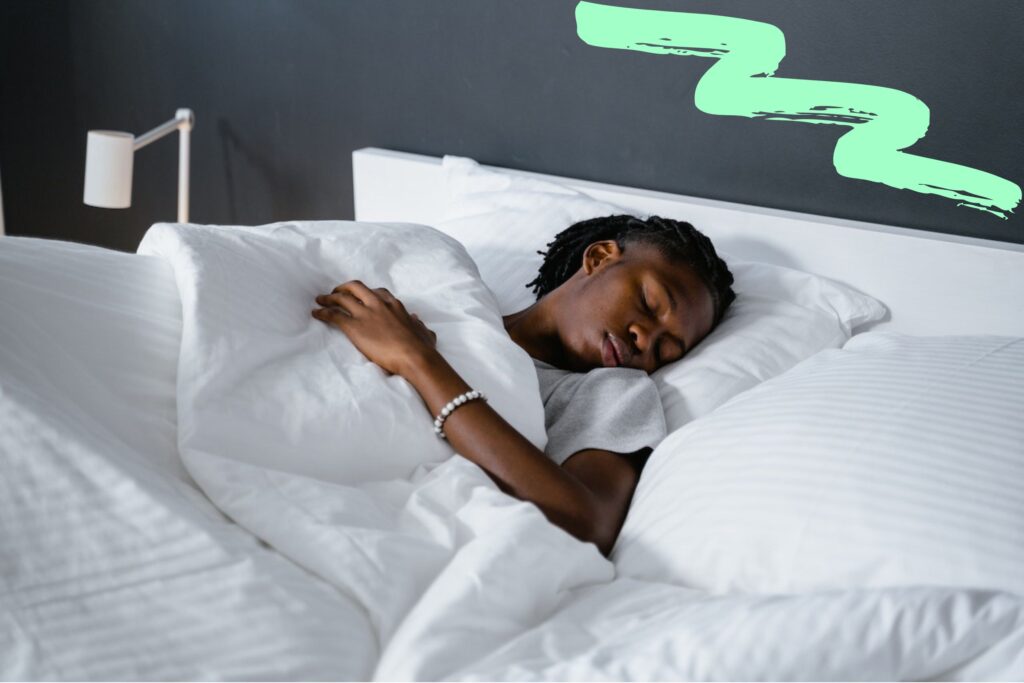Maintaining a clean home is not just about aesthetics; it has a profound impact on our mental well-being, focus, motivation, happiness, productivity, and sleep quality, too. In today’s fast-paced world, it is essential to create an environment that fosters personal growth and well-being if you’re keen to come out on top. Or, at the very least, not keep slipping up on socks you’ve left lying about the place…
Though the Queen of Clean Marie Kondo may have turned her back on tidying, we’re not quite ready to yet. So, today, we’re exploring the psychological and physical benefits of having a clean home, and how it can be a force for good in your life.
Decluttering May Promote Mental Clarity
A clutter-free environment allows the brain to focus on tasks one at a time, leading to better concentration and productivity. Clearing away clutter can help regulate emotions and offer a calming effect during overwhelming situations.
By removing excess items and organising our surroundings, we create a more serene environment that reduces stress, anxiety, and feelings of being overwhelmed. This process allows us to focus better, feel more in control, and boost our self-esteem.
Furthermore, decluttering can lead to improved relationships, as a tidy space encourages social interactions and reduces conflicts over clutter. What’s not to love?
To help improve your mental clarity, and in the spirit of keeping things decidedly uncluttered, here are some quick tips on decluttering effectively and efficiently:
- Start small by decluttering just one drawer or shelf at a time.
- Separate items into piles of keep, donate, and toss.
- Ask yourself if you have used or worn an item in the past year. If not, it’s time to let it go.
- Use storage solutions like bins or baskets to keep similar items together and easily accessible.
- Hang hooks on walls or the back of doors to maximize vertical space.
- Use a filing system to organize important documents and papers.
- Challenge yourself to get rid of 10 items each week until you’ve decluttered your entire home. If you can’t bear to throw things out entirely, confine them to self storage at the very least. You might be wondering; how much is storage per month? Well, it really depends on factors including size and contents, but generally, it’s not quite as much as you might think.
- Take before and after photos to see the progress you’ve made and stay motivated.
- Remember that decluttering is a process and it’s okay to take breaks or ask for help.

Reduces Stress & Anxiety
Human beings are creatures of habit, and tend to find comfort in consistency and routine. Having a devoted cleaning schedule, therefore, may actually provide comfort and improve feelings of contentment.
According to the Anxiety and Depression Association of America, the calming effects of a tidy home, which may come with more clarity from a consistent commitment to cleaning, can help alleviate stress, anxiety, and depressive symptoms.
Cleaning with a consistency in mind can also reduce fatigue and improve concentration.
Indeed, the state of our living environment has a direct impact on our emotional well-being. A study published in the Personality and Social Psychology Bulletin found that women who described their homes as cluttered or unfinished experienced increased levels of depression and fatigue. Maintaining a clean home promotes feelings of contentment and happiness, contributing to overall mental health.
Read: How decluttering can improve your life
Increases Focus
Tidying up your home can help you feel better and more focused. Studies reveal that cleanliness (or its absence) can have a direct influence on our mental well-being; chaotic clutter can cause despondency and higher cortisol levels (the hormone of stress).
On the flipside, a tidy home equals a tidy mind, as they say, and can promote productivity and focus, an even more important facet of domestic life than ever with so many of us still spending some of our working week in our home office.

Encourages A Healthier Lifestyle
Incredibly, when considering one’s domestic environment, cleanliness is even more of a predictor of good health than the walkability of a neighbourhood. A study by Nicole Keith, PhD, a research scientist and professor at Indiana University, found that people with clean houses tend to be in better health than those with untidy homes, though it should be noted that it’s difficult to draw firm conclusions on this one, due to the knotty nature of the cause and effect of having a messy home and a person’s health.
Promotes Better Sleep
Studies have found that having clean sheets and making your bed are associated with a better night’s rest. And we’re all well versed in the mental and physical health benefit of a good night’s Zzzeds, hey?
But that’s not all; having a clean home may significantly improve sleep quality by reducing exposure to allergens, dust, and bacteria that can cause respiratory issues and disrupt rest, too. Regularly washing sheets and maintaining a tidy space – whether you’re going it yourself or using a domestic cleaning service – eliminates potential irritants and ensures a comfortable sleeping area, too.
And if you’re keen to sleep even more soundly, then rest assured that removing distractions such as screens and unnecessary objects from the bedroom can help the brain to unwind more easily in time for bed, leading to better sleep.

Strengthening Personal Discipline
Maintaining a clean home requires consistent effort and discipline to keep on top of things and all those dirty dishes from stacking up! This practice can translate into other areas of our lives, helping us develop strong habits and routines. According to Charles Duhigg, author of The Power of Habit, developing keystone habits, such as keeping a clean home, can lead to positive changes in multiple aspects of life.
We couldn’t agree more.
The Bottom Line
Though you could likely more effectively reap similar healthy and wellbeing benefits from a whole host of other approaches – meditation, exercise, medication, talking – there’s certainly much to be said about keeping a clean home. Now, where did I put the remote?





